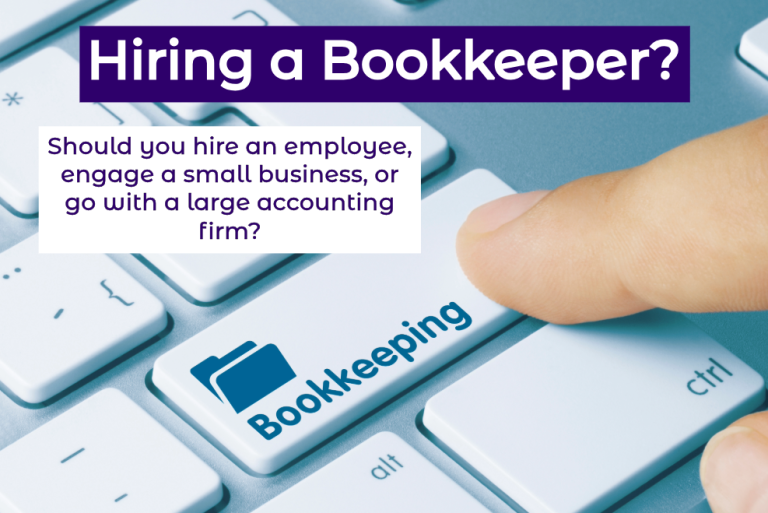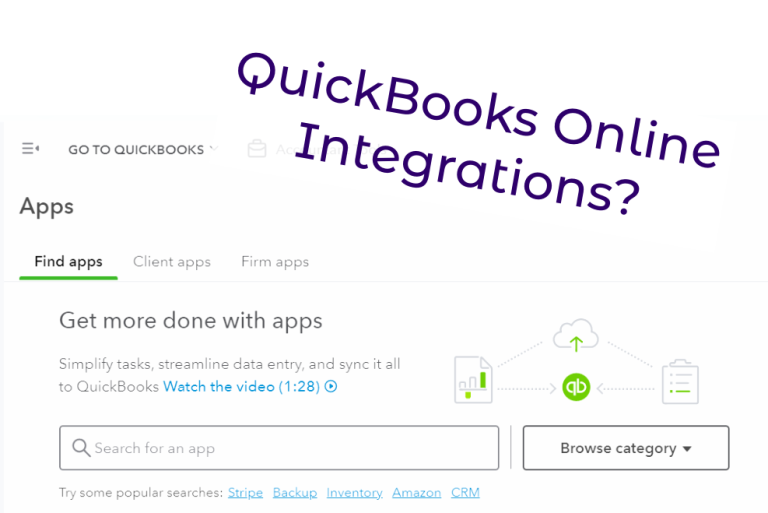Congratulations are in order! You’ve decided to start a business and are determined to make it happen. The statistics on small business ownership can be discouraging, but entrepreneurs who get set up correctly and understand the challenges they may have to overcome in the process of getting established are the ones who are best prepared to be in it for the long haul.
Florida is pretty friendly for small businesses, so you’re in luck. You’ve likely done the hardest parts already – developing a solid business plan, thinking about where funding will come from, deciding where you will set up shop, and looking at the costs as well as what you stand to gain from this. You feel pretty ready to get things going.
So, now what? What you will need to do will depend on the nature of your specific business and your municipality, but let’s take a look at what most businesses will need to take care of in order to get your new Florida business set up.
Choose your legal form of business and file it with Sunbiz
I’m not a lawyer, so this is not to be considered legal advice.
What you choose as your Florida business entity has some important ramifications, mostly related to taxes and protecting your personal assets in the case of a lawsuit or a business bankruptcy. There are further nuances related to employing your children, dealing with employee and owner benefits, and entering into contracts, so it would behoove you to do your due diligence before making a choice. Here are your main options.
Sole proprietorship
You’re the only owner and you own the business in your name or you use a fictitious name (also known as “doing business as” or DBA).
- Taxes: All income passes through for the owner to claim on his personal tax return.
- Liability: All liability lies with the owner as there is no other entity that could be sued.
Partnership
You have one or more partners, and unless you’re operating using everyone’s full names, you will need to do a fictitious name filing.
- Taxes: All income passes through for the owners to claim on their personal tax returns according to their shares of ownership.
- Liability: All liability lies with the owners as there is no other entity that could be sued.
Limited liability company (LLC)
Available to single members and also partnerships in Florida, you will operate under your LLC‘s name (unless you also have a fictitious name).
- Taxes: All income passes through for the owners to claim on their personal tax returns according to their shares of ownership.
- Liability: The LLC acts as a protection against personal liability and most likely would be the one sued if an issue arose.
Corporation (C-corp)
The only totally separate legal entity, you’d be doing business under your corporate name (fictitious names are still available here, too).
- Taxes: Corporations must pay corporate income tax, and the owners pay personal income tax on dividends.
- Liability: The corporation acts as a protection against personal liability and most likely would be the one sued if an issue arose.
S-corp election
Available to LLC and C-corp owners, the S-corp election offers some different strategies for tax purposes as well as some of those nuanced things I mentioned above. I suggest consulting a lawyer or a CPA about your personal situation, but here is a good article on the pros and cons to get you started.
Nonprofit corporation
A nonprofit is not a business at all; it has no owners but instead board members who work to further the organization’s mission. It is a corporation under Florida law. This article will not address nonprofits, but you can read more about using QuickBooks for nonprofits in my other article, which should be helpful if you’re just starting up or if you remain a smaller org.
I do also offer a few special services just for small 501(c)(3) nonprofits or those pending IRS determination (filing a 1023 or 1023-EZ).
Get an EIN
Your next step after forming your business is to get an EIN. You should wait until the Sunbiz website shows up with your new business filing if possible, but there is almost no reason for your filing to be denied, so if you’re in a hurry, you can go ahead and request an EIN through the IRS website. It will be issued immediately. You’ll need this for pretty much all of your next steps, so be sure to get this done early in the business startup process.
A tip for Sunbiz is to check their processing times. Typically, if you paid with a check and did your filing by mail, your check will clear when they process your paperwork, but the date it’s received is the effective date (they stamp it upon receipt, even if it’s not processed right then). It does take extra time for it to be updated online, so while it’s best practice to wait until your filing can be verified online, your effective date is a lot earlier than that.
In a nutshell: They receive your filing and stamp it, which is the effective date > they process the paperwork and cash your check > it’s updated online for all to see.
Those who are able to file online should do so as it will eliminate a lot of that waiting period (these are often processed within a week), but the downside is you don’t have this trick (seeing when the check clears) to use while the site is being updated on their end.
Open a small business bank account
The next order of business is opening a small business bank account. I suggest checking with whatever financial institution you normally bank with. Even if your business is 100% virtual, it is still helpful to have a local place you can use for withdrawals in a pinch, and these institutions might also have fewer requirements for what they need to open the account if you’re already an account holder.
You will need your EIN for sure, as well as owner information. You should decide who needs to have signing privileges on the account, and those people will need to submit their ID and SSN, etc. Decide if you want checks and a debit card and who should have them.
You may need an operating agreement if it’s not a sole proprietorship or single member LLC. Local places don’t seem to be as strict on this, but some online banks have required this in my experience. Another thing I can warn you about is that credit unions are chartered by county and if you have others outside that area who are owners, the credit union likely will not be able to work with you.
Business credit is not that easy to establish since the owners are inextricably linked to the business and its performance. You will almost always need a guarantor at first, or maybe always. You can find out more about business credit through Dun and Bradstreet. It’s good to try to start establishing it soon after you start your business.
Last but not least, while you’re researching banks, ask if they offer view-only access for accountants. Even if you do not plan to use an accountant or bookkeeper right away, it would still be useful in the future when you grow.
Register for EFTPS with the IRS for payroll taxes if you will have employees
If you will hire employees, you will want to sign up for electronic payment of your payroll taxes. This is an IRS thing (yay…) but it will make your life a lot easier. You should start this part early as well since it can take a couple of weeks for the validation process for new employers.
Apply for any licenses
There’s a wide variety of alphabet agencies in Florida that exist to take your money and regulate you! All jokes aside, you should research your occupation and find out if you need any type of license before you take on your first customer. Here are a few to check with:
- Restaurants and food-related – There are three agencies to check with, lucky you!
- Department of Health (DOH): Food Safety and Sanitation, Food Manager Certification
- Florida Department of Agriculture and Consumer Services (FDACS): Retail Food Establishment, Mobile Food Establishments
- Department of Business and Professional Regulation (DBPR): Mobile Food Dispensing Vehicles, Restaurants and Caterers
- Professionals that provide services (there are MANY here): DBPR
- Therapists: Florida Board of Clinical Social Work, Marriage and Family Therapy, and Mental Health Counseling
- Health-related services and medical professionals: DOH
Don’t forget to check with your city or county to see what you might need at that level. Most municipalities will have a permitting process if you are renting a commercial property so you’ll likely need at least an occupancy license and maybe a fire inspection. Some businesses such as daycares will have more stringent rules where public safety is concerned, so be sure to check into what your city or county might require in addition to whatever the state needs.

Take a look at workers’ comp rules for your business
Florida workers’ compensation rates and rules vary by industry, but generally, if there are at least four employees including any non-exempt owners, you will need to obtain coverage from an approved insurer. LLC and corporation owners may choose to get an exemption for themselves (the officers). This area can be complex and is quite variable, so please get quotes from a few agents (or use a broker to shop it for you) before you commit to anything.
Many third-party payroll companies (like Gusto [affiliate link]) have a pay-as-you-go workers’ comp option, so don’t forget to check into that, too.
Apply for a sales tax ID
Florida small businesses should always be sure of any responsibility they have as far as collecting and remitting sales tax. Many services are not subject to sales tax, but you should check with the Florida Department of Revenue (DoR). If you will be required to collect taxes, you’ll need to register with the state and you will get a certificate with the numbers you’ll need to remit what you collect, which can be done online.
How often you’ll need to remit is based on your sales volume, but any business with over $1000 in sales tax collected each year will need to remit monthly. That amounts to less than $15,000 in sales each year. Basically, if you are subject to collecting and your business grows even a little, expect to remit monthly.
You’ll need to renew this each year in October as they all expire December 31st.
Register with the Florida DoR for state reemployment tax
Better known as unemployment tax or SUTA, Florida refers to this fund as a reemployment tax. Florida business owners must pay this on the first $7000 of the wages earned by each employee per year. The rate is 2.7% for new business owners, and this does go down after you’ve been in business awhile.
FUTA, the federal version, will also need to be paid, and the rate for this is 6% but you can get credit for what you’ve paid into SUTA and this percentage reduces the rate you owe for FUTA. The deposits on this are made quarterly, with once-a-year filings on IRS Form 940. This again is almost always handled by whomever is doing your payroll processing. There is no registration for this upfront; FUTA is essentially like a tax return that is filed after the fact.
Obtain insurance
I’ve got business insurance…do you? Do you even need it? I’d say most businesses do need some type of insurance. There are many kinds and I’m not an insurance agent so I can’t advise, but I can point you to who can tell you more:
- Hiscox
- NEXT
- State Farm
- The Hartford
- Your local agent!
A few types to ask about are:
- General liability
- Errors and omissions (E&O)/professional liability insurance
- Cyber liability/data breach
- Business income coverage
- Commercial property and/or vehicle coverage
- Business owner’s policy (BOP) which is usually a combination of general liability, income coverage, and commercial property
Sign your commercial lease
You might not need to rent space (or purchase a building), but if you do, commercial leases can have your eyes glazing over pretty quickly. Know that most commercial space in Florida will demand a relatively long lease term when you compare them with residential leases – we’re talking five or 10 years here, with renewals of the same length. Hopefully you’ll find a place that’s perfect for you for a price that’s in your budget!
Another thing to understand is what exactly is included in your payment. There are terms like “gross lease” and “triple net” and “CAM” which you will need to familiarize yourself with. These describe what is included in your payment to your landlord. Sometimes things like property taxes, insurance, and maintenance are an additional cost and it can be hard to know what those will be. A gross lease will just be the one payment to the landlord. CAM stands for common area maintenance and that may be an additional fee which the landlord should be able to tell you about up front.
Lastly, understand how to calculate your rent when looking through commercial property listings. The easiest one to do is $12 per square foot per year. The math on that is $1 per square foot per month. Say you have a 1000sf space you’re considering and it’s $12 sf/yr. That equates to $1000/mo ($12 x 1000sf for the year = $12,000/yr). You’ll quickly learn which listings are the upscale ones and which ones may be in areas that are not so great or perhaps are not in the best of shape. Don’t be afraid to negotiate! And remember to consider all the costs involved.
Again, I’m not a lawyer, nor am I a real estate agent (used to be, but not anymore!), so I would encourage you to work with an agent or at least seek legal counsel prior to signing a lease. Here is a good article in the meantime.

Consider your accounting needs
Here’s the fun part! Well, for me. 😀
A lot of the things surrounding a new business are financial in nature. They relate to taking in income, paying expenses, paying employees and contractors, preparing for tax time, making sure your inventory is correctly counted, and the list goes on. Here are some day-to-day financial items you’ll need to consider when starting a new business.
POS system
Your point-of-sale system can do many, many things depending upon which system you go with and how much you’re willing to spend. It can encompass almost all of the next items I list, but the main function of it is to ring up orders and accept payment (it’s in the name…). Lucky for us, we live in the digital age and there are TONS of options now. Toast, Clover, Square, Order Counter are some of the most popular for those who need an interface for employees to use and for customers to pay.
For those who do not need that functionality, you may not need a POS system at all. Say you provide services that you bill for and customers pay you upon receiving an invoice. You can do that directly through your accounting software or with one of the many bill pay systems that currently exist, like Melio (affiliate link).
Merchant services
Everyone will need to accept credit card payments; it’s not even an option to only accept cash anymore (I mean, it is, but I wouldn’t suggest it). Merchant services have also been integrated into many POS systems and accounting software options we use nowadays, and it’s pretty easy to get approved. It used to be a longer process and you may not get good rates if they deem your type of transactions a high risk for fraud. There are still some elements of that, but it’s not like it was 20 years ago.
Typical rates you can expect are around 3% or a little less for credit transactions and 1% for ACH (always my favorite option!).
Inventory system
Nobody likes dealing with inventory. There, I said it. Some owners will go so far as to just expense everything when it’s purchased, but I don’t suggest that since it’s not an accurate portrayal of your expenses. It doesn’t need to be super complicated, but you do need some kind of system to track your purchases and to input your counts. I recommend counting no more than weekly and no less than monthly.
You need to keep track of this not just so you can calculate your exact expenses but also so you know if something is amiss. From employees being too generous with toppings on pizzas all the way to purposeful theft, you need to have an idea of what’s going on with your inventory.
Accounting system
Okay, you have to get QuickBooks Online. I’m completely biased, but as much as I would love for there to be more competition in this area, nothing can compare to the capabilities of QuickBooks Online. It is constantly being updated (for better or for worse) and you can run tons of different reports with it. You can create a customized Chart of Accounts so your financial statements are easier to interpret based on YOUR business. You can set up your customers and your vendors and your products. You can invoice through it and accept payments. You can connect your bank so it will sync with what you’ve input, making it that much easier to reconcile each month. You can upload invoices and bills so you have a paper trail within the software if you ever need to find something. It’s just a great thing for small business owners.
If you end up wanting to hire a virtual Florida bookkeeper, I include the cost of it in my fee. Either way, it is a cost that’s worth budgeting for.
Bill payments to vendors
Again, we are going back to a software program like Melio or QuickBooks, or you can always cut checks or use the bill pay function through your bank. Many vendors do accept cards on their website now, too. Preferably, you’d pick a method and stick with it so you’ll eventually have a tidy workflow for your accounts payable.
Payroll for employees
Ah, payroll, the bane of every small business owner’s existence. Okay, that’s extreme, but it can be a drag to have to sit down each week to enter hours and any wage adjustments. If you are a large enough business to have to hire people (yay!), you might consider outsourcing your payroll as well. But if not, I HIGHLY recommend using a third party payroll processor who will provide a full array of payroll processing services and will assume the risk of the penalties that are incurred if it’s ever wrong. You still will have to enter payroll, but you are relieving your business of some of the liability involved.
A full-service payroll processor should include:
- An employee portal so they can enter their withholding, update their address, etc.
- A company portal so you can enter each employee’s pay rate and hours each week
- Calculate the correct amount to withhold for each employee for each pay period
- Withdraw the gross amount, including all payroll taxes, from your account each pay period
- Send the net amount to employees via direct deposit (ACH) or check
- Hold or immediately remit payroll taxes to the Department of the Treasury
- Track any paid time off
- File all forms with the IRS such as Form 941 quarterly and W-3 annually
- Issue W-2s and 1099s at the end of the year
- Anything required by the State of Florida such as wage data for the purpose of calculating the reemployment tax
Please do not do this yourself! If you take any piece of advice in this article, let it be this. You do not want to play around with the IRS in particular, and you also don’t want to mess with your employees’ pay!
End-of-year accounting to prepare for tax time
At the end of the year, it’s time to get ready for taxes. You’ll want to pull reports from your accounting software, ensure you have at least a digital file of receipts and invoices in case there is any question of how something is categorized, and do any last owner’s draws for the year. You’ll also need to think about depreciation and amortization. If you use a tax accountant, they will take care of this for you, but they will need to know what your assets are and what they cost. A savvy bookkeeper can help you with this during the year, too, but almost always, the tax preparer will advise on the depreciation expense.
Concluding Thoughts
Starting a business in Florida is not overly difficult, but there are some boxes you’ll need to check. Your particular pathway to your grand opening will be unique, but I hope this guide will be helpful in giving you the various steps to take and offering some resources for additional help.
If you think you’d like to outsource your bookkeeping, you can try out my new pricing estimate tool to give you a ballpark of what your monthly accounting fees will be as well as your setup cost. Since you’re a brand new business, you won’t have much to catch up or fix, so you can bypass the historical transactions section of the calculator on page 4. Then, you can schedule a short call and we’ll go over any questions you have so we can get started. Let’s talk!




